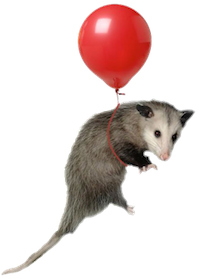Permalinks #
Cool URIs don’t change #
Eleventy automatically helps you make sure that Cool URIs don’t change.
What to leave out…
File name extension. This is a very common one. "cgi", even ".html" is something which will change. You may not be using HTML for that page in 20 years time, but you might want today's links to it to still be valid. The canonical way of making links to the W3C site doesn't use the extension.
Default Input/Output Examples #
Assuming your --output directory is the default, _site:
| Input File | index.njk |
|---|---|
| Output File | _site/index.html |
| Href | / |
| Input File | template.njk |
|---|---|
| Output File | _site/template/index.html |
| Href | /template/ |
| Input File | subdir/template.njk |
|---|---|
| Output File | _site/subdir/template/index.html |
| Href | /subdir/template/ |
| Input File | subdir/template/template.njk |
|---|---|
| Output File | _site/subdir/template/index.html |
| Href | /subdir/template/ |
Remapping Output (Permalink) #
To remap your template’s output to a different path than the default, use the permalink key in the template’s front matter. If a subdirectory does not exist, it will be created.
---
permalink: this-is-a-new-path/subdirectory/testing/index.html
---
The above will write to _site/this-is-a-new-path/subdirectory/testing/index.html.
permalink: false #
If you set the permalink value to be false, this will disable writing the file to disk in your output folder. The file will still be processed normally (and present in collections) but will not be available in your output directory as a standalone template.
---
permalink: false
---
Use data variables in Permalink #
You may use data variables here (and template syntax, too). These will be parsed with the current template’s rendering engine.
For example, in a Nunjucks template:
---
mySlug: this-is-a-new-path
permalink: subdir/{{ mySlug }}/index.html
---
Writes to _site/subdir/this-is-a-new-path/index.html.
Disable templating in permalinks New in v0.7.0 #
Some template syntaxes are nicer than others and you may want to opt-out of the templating engine here. Use the dynamicPermalink option in your front matter to disable this on a per-template basis.
---
permalink: "/this-will-be-a-string-without-templating/"
dynamicPermalink: false
---
Globally disable templating in permalinks New in v0.3.4 #
Eleventy includes a global configuration option to disable dynamic templating altogether. This will save a few template renders and is probably marginally faster, too.
module.exports = function(eleventyConfig) {
// Enabled by default
eleventyConfig.setDynamicPermalinks(false);
};Use filters! #
Use the provided slug filter to modify other data available in the template.
---
title: My Article Title
permalink: subdir/{{ title | slug }}/index.html
---
(the above is using syntax that works in at least Liquid and Nunjucks)
Writes to _site/subdir/my-article-title/index.html.
---
date: "2016-01-01T06:00-06:00"
permalink: "/{{ page.date | date: '%Y/%m/%d' }}/index.html"
---
Writes to _site/2016/01/01/index.html. There are a variety of ways that the page.date variable can be set (using date in your front matter is just one of them). Read more about Content dates.
Ignore the output directory New in v0.1.4 #
To remap your template’s output to a directory independent of the output directory (--output), use permalinkBypassOutputDir: true in your front matter.
---
permalink: _includes/index.html
permalinkBypassOutputDir: true
---
Writes to _includes/index.html even though the output directory is _site. This is useful for writing child templates to the _includes directory for re-use in your other templates.
Custom File Formats #
To generate different file formats for your built site, you can use a different extension in the permalink option of your front matter.
For example, to generate a JSON search index to be used by popular search libraries:
---
permalink: index.json
---
<%- JSON.stringify(collections.all) -%>
Pagination #
Pagination variables also work here. Read more about Pagination

